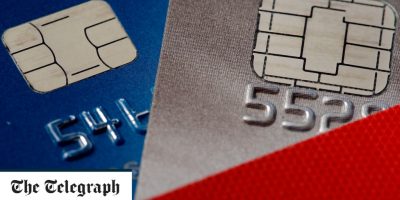Teenagers have exploited a credit loophole to go on “free” shopping sprees, it has emerged. Klarna, Britain’s biggest “buy now, pay later” lender, has been forced to overhaul its security system after a 16-year-old girl was able to open an account on the website and rack up debts of more than £500 through buying clothes online.
As disclosed this week by The Telegraph’s consumer champion, Katie Morley, the minor was able to set up a Klarna profile by opening an account using her own name but her mother’s date of birth. This fooled the credit check system into thinking the girl and her mother were the same person, even though no one of that name, age and address existed on the electoral roll. It has exposed an alarming security flaw at the increasingly popular service, which is strictly for adults.
Klarna, which has seven million British customers, said it had introduced new security measures after the loophole came to light, including a new customer verification system that sends a one-time password via text message to the owner of an account, which they must enter before completing their order. It is also working on a new algorithm within its “risk model” checking system to prevent further breaches by minors, it said.
The company would not say how many times under-18s had been able to get the better of its security measures in this way, but this newspaper found a number of forums online where teenagers appeared to discuss the benefits and legal implications of using “buy now, pay later” services, including Klarna, while under age.
Klarna said it and its retail partners were “only too aware” of the various social media posts circulating, providing tips on how to defraud retail, finance and parcel delivery services.
This is not the first time teenagers have hijacked such “free money” services. Afterpay, the Australian “buy now, pay later” provider that now operates as Clearpay in Britain, came under fire in 2018 following media reports that teenagers had infiltrated the website and spent hundreds of dollars on alcohol.
Similar stories of misuse by minors in Britain have raised questions over the robustness of security and affordability checks at “buy now, pay later” firms, a relatively new form of credit provider that has grown rapidly in recent years. Klarna, for example, doubled its customer numbers in 2019, with orders made via the firm every 1.3 seconds. It has partnerships with more than 5,000 retailers, including brands popular with teenagers such as Asos, JD Sports and Topshop. Laybuy is another firm that offers similar services.
James Jones of Experian, the credit checker, said it was crucial that lenders enforced the rules and took steps to confirm the identity of customer, as well as assessing whether they have the capacity to take on debt.
StepChange, a debt charity, said such misuse of credit by minors, which can spiral into unaffordable debt, had added to concerns. The charity’s Richard Lane said such services could “remove the friction from the process of paying and encourage individuals to put off thoughts of affordability until a later date”. He added: “This is more concerning when attached to a product that is incredibly popular among young people, who tend to have higher outgoings and less secure incomes.”
A Telegraph Money investigation in February found that 30,000 people had damaged their credit file because of missed Klarna payments.
Almost a quarter of those aged 18 to 24 have turned to “buy now, pay later” services to fund their spending since March, when the coronavirus lockdown began and online shopping boomed, according to a study by Comparethemarket, the comparison website. In April the City watchdog, the Financial Conduct Authority, ordered “buy now, pay later” firms to offer their customers payment holidays if they were unable to pay because of Covid-19.
A spokesman for Klarna said: “We take the issue of fraud very seriously and have advanced fraud detection techniques in place. Fraud is an industry-wide problem that is constantly changing and we work closely with the authorities, our merchants and logistics partners to combat any potential fraud that we identify.
“Criminals are always becoming more sophisticated, which means our teams are constantly updating our policies to protect customers and we frequently introduce enhanced security measures to combat this changing landscape.”
It said its systems and checks were extremely robust and its policies ensured no customer paid for a purchase they did not make.
























Comments